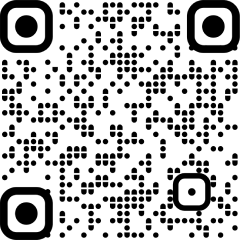Soon, new buildings in Mumbai will have to set up waste treatment plants
On Monday, the BMC’s improvement committee cleared a proposal to bring about changes in the Development Control Regulations (DCR) 1991 for the twin purpose.
 MUMBAI: Dry and wet waste segregation will soon be made compulsory for all housing societies in the city. Besides, new constructions will have to mandatorily set up waste segregation and treatment plants inside their premises; this will be one of the pre-conditions for securing building permission. On Monday, the BMC’s improvement committee cleared a proposal to bring about changes in the Development Control Regulations (DCR) 1991 for the twin purpose.
MUMBAI: Dry and wet waste segregation will soon be made compulsory for all housing societies in the city. Besides, new constructions will have to mandatorily set up waste segregation and treatment plants inside their premises; this will be one of the pre-conditions for securing building permission. On Monday, the BMC’s improvement committee cleared a proposal to bring about changes in the Development Control Regulations (DCR) 1991 for the twin purpose.The proposal will come up for discussion in the BMC’s general body meeting in the next few days. Following the committee’s clearance, it will be sent to the government for its final approval. Sources said since the BMC has taken the decision based on the Bombay high court’s directions, the general body and the state government will give their sanction to the proposal on a priority basis.
The BMC has also made a similar proposal in the draft development plan (DP) 2034, which is under discussion. But by making changes in the DCR 1991, the BMC will ensure that the plan can be implemented immediately after the state government’s approval comes in.
“It is a welcome move and the first step in a long process which needs a backup of manpower and infrastructure. The system will not take off if the civic authority does not involve ragpickers in the process of segregating garbage generated in slums. The BMC should also create garbage-segregation points in every ward. Garbage mismanagement damages the seashore and mangroves,” said environmentalist D Stalin.
Earlier, the BMC had issued a similar directive, attached as a condition for new constructions. “Builders had an option to challenge the directive. But once it is incorporated in the DCR, they have no option but to follow it,” said an officer.
Every day, 7,800 metric tonnes of garbage is generated in the city, most of it unsegregated. The BMC carries it to three dumping grounds at Deonar, Mulund and Kanjurmarg but is unable to process it.
Ragpickers sometimes burn garbage to collect usable material from it. A few months ago, a similar act allegedly caused a major blaze at the Deonar dumping ground, which handles more waste than its capacity permits.
Officials said waste segregation at the source point will reduce burden on dumping grounds and help them develop a better waste-management system. But there are complaints that the BMC is yet to develop infrastructure to collect dry and wet waste separately for processing.
The civic body has proposed that societies segregate waste and set up a composting mechanism within their premises.
While explaining the proposed changes in the DCR, deputy municipal commissioner (improvement) Chandrashekhar Chore said standalone buildings which do not have the space to set up such a system in their premises, need to ask their residents to separate wet and dry waste. “The BMC will collect both separately and set up recycling plants in a few wards to treat the collected dry waste,” said Chore.
The BMC will recycle dry waste in its decentralized plants and then send it to the waste recovery centres managed by NGOs, which, in turn, will use it according to their requirement.
The BMC will take wet waste to the dumping ground to process it and make into compost.



COMMENTS
All Comments
By commenting, you agree to the Prohibited Content Policy
PostBy commenting, you agree to the Prohibited Content Policy
PostFind this Comment Offensive?
Choose your reason below and click on the submit button. This will alert our moderators to take actions